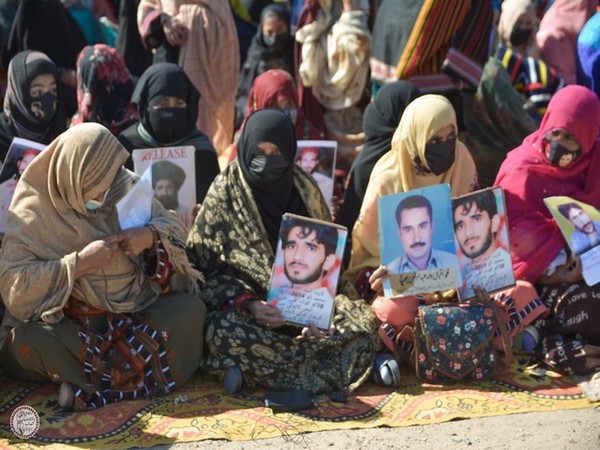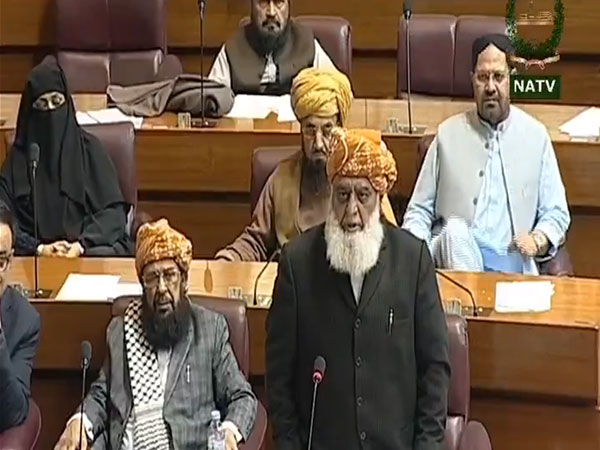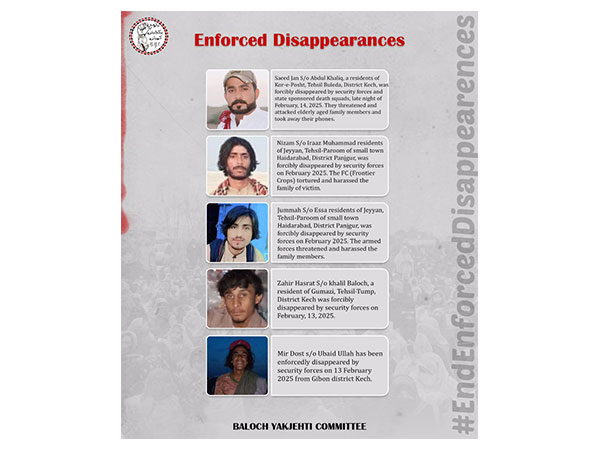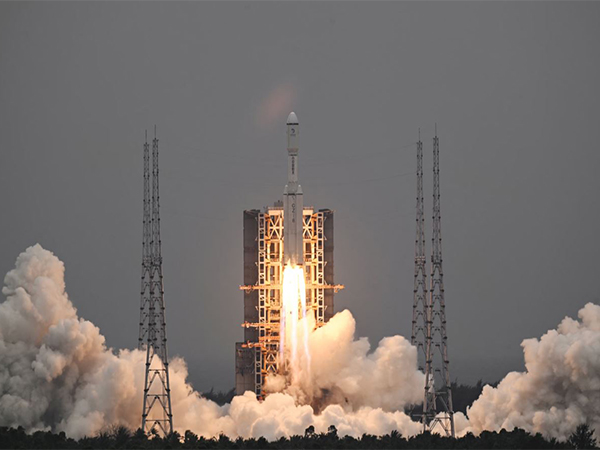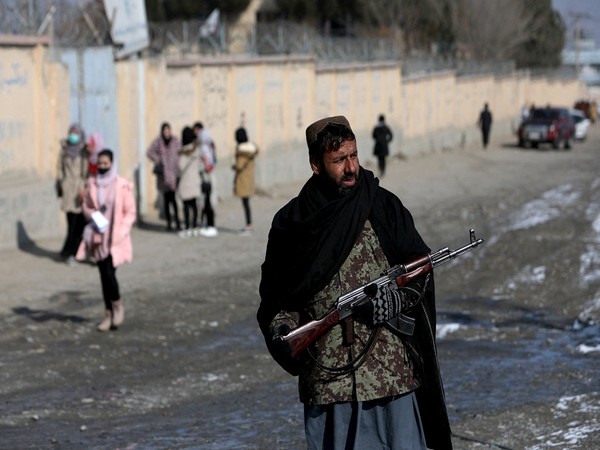
A Taliban fighter guards a street in Kabul, Afghanistan, December 16, 2021. REUTERS/Ali Khara - RC2KFR9ZOSXO
Kabul [Afghanistan], April 14 (ANI): Contrary to its claim that the Taliban will not allow Afghanistan or the weapons to be used for terrorism, the group has been reportedly accused of smuggling weapons to Pakistan, which eventually may be used in cross-border skirmishes against India.
“Taliban has been insisting that there are proper security checks to prevent any weapons smuggling because they are an improved Taliban. But the weapons market is thriving and the weapons that are being smuggled into Pakistan will eventually be used in cross-border skirmishes against India and make their way into India,” according to a Canada-based think tank, International Forum for Rights and Security (IFFRAS) said.
But before that Pakistan will have to pay a huge price if it does not control illicit arms trafficking. Ultimately it is going to suffer first when the separatist and terrorist organizations operating from its land get a hand on these weapons on a large scale, it warned.
In August 2021, the US left much of the military equipment and weapons at the disposal of the Afghan forces which eventually fell into the hands of the Taliban. After capturing Kabul, Taliban not only took political control of Afghanistan but had also gained control of all the US-made weapons and military equipment that were left behind by the fleeing Afghan forces.
The US-made arms and military accessories are openly traded in shops by Afghan gun dealers. The traffickers are collecting the weapons from the abandoned Afghan army bases, and procuring them from the Afghan government soldiers and Taliban fighters. These weapons are then mostly sold in weapons markets or arms bazaar in tribal areas of the Afghan-Pakistan border, it added.
The arms smugglers in Pakistan’s borders are having a field day. The weapons from Afghanistan are smuggled into Pakistan in trucks carrying fruits and vegetables. The main points of entry through which the arms are smuggled are Torkham border crossing Torkham (Khyber Pakhtunkhwa), Chaman (Baluchistan), Ghulam Khan (North Waziristan) and Nawa Pass (Bajaur), it said.
Meanwhile, Afghanistan is the prime source of opium supply to the world drug markets and Pakistan is the transport hub with drug networks operating from the country using its drug routes to reach international markets, according to an article in Islam Khabar.
The article said the geographical location of Pakistan makes it one of the prominent drug transit points along the Southern route. It said Pakistan is also depending on the narcotic trade for sponsoring terror in India.
Pakistan shares 2400 kilometres of border with Afghanistan, which is largely porous. And this has served a transit corridor for drug traffickers. Forty per cent of Afghan drugs transit Pakistan before they reach the international markets.
Tonnes of opiates and meth are trafficked from Afghanistan to the Torkham border crossing, Ghulam Khan in Khyber Pakhtunkhwa province, from where they are sent to Lahore and Faisalabad, reassembled into huge consignments, the article said.
Then they are transported to Karachi and Gwadar, and fishing vessels in Makran coast are used for drugs transport to the South Asian markets. Balochistan has also been an important drug transit route in Pakistan.
Islam Khabar said around 60 alternative drug routes are working through the Balochistan province alone, with major areas being Chaman, Noshki, Chagaghi, Dalbandeen, Panjgor, Turbat, Gawadar and Jeewani. (ANI)
Blinken links Taliban’s takeover in Afghanistan to ‘serious erosion of human rights’
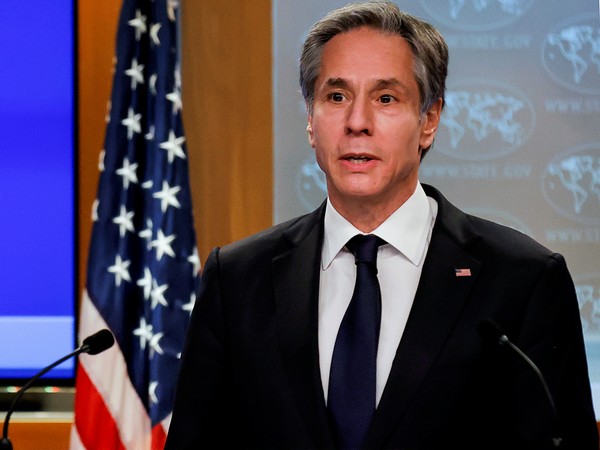
Washington [US], April 14 (ANI): US Secretary of State Antony Blinken on Tuesday (local time) said that the Taliban‘s takeover in Afghanistan has resulted in a “serious erosion of human rights” in the country.
Blinken’s remarks came as the US state department released the 2021 Human Rights Report on Tuesday.
“In Afghanistan, the Taliban‘s takeover precipitated a humanitarian crisis, and has resulted in serious erosion of human rights, from arbitrary detentions of women, protesters, and journalists, to reprisals against security forces for the former government, to growing restrictions on where women and girls can study or work,” he said during the press briefing.
Notably, the Human Rights Watch (HRW) has also claimed that there has been a surge in human rights violations in Afghanistan, reported Tolonews. “Human Rights Watch works on the human rights situation in about 100 countries around the world and at the moment we see Afghanistan as a very urgent priority. The human rights situation in Afghanistan is deeply worrying,” the media outlet quoted Heather Barr, associate director of the Women’s Rights Division at HRW, as saying.
However, the Taliban have denied claims of human rights violations in the country and said that such violations have decreased since it came to power in Afghanistan. “The rights of all Afghans are ensured now. The Islamic Emirate is committed to ensuring the rights of all citizens under an Islamic structure, including men and women and any other aspect,” the media outlet quoted Bilal Karimi, Taliban deputy spokesman, as saying.
The Taliban‘s swift ascension to power in Afghanistan occurred in mid-August, triggering economic disarray and a dire humanitarian crisis. Despite repeated calls from all around the world, the Taliban have failed to deliver its promises on the safety of the Afghan people and their assurance of an inclusive government. (ANI)
